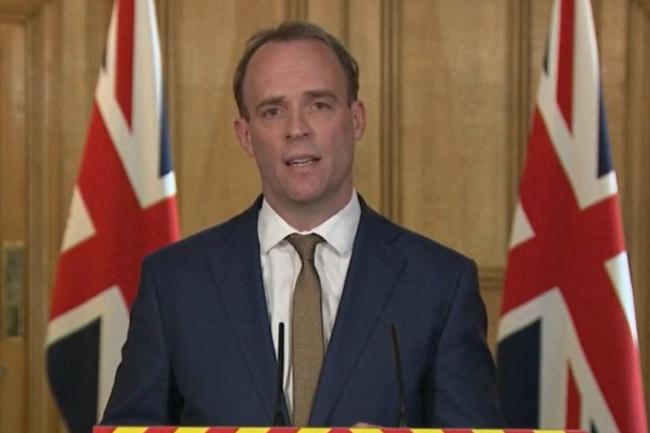Responding to concerns raised by Chair of the All-Party Parliamentary Group for Tamils (APPGT), Elliot Colburn, over potential cuts in funding to UN Expert Committee, British Foreign Secretary, Dominic Raab, highlighted his concerns for the human rights environment in Sri Lanka and noted that his officials have been in contact with the Office of the UN High Commissioner to secure a level of funding which would enable for collection and analysis of evidence of war crimes in Sri Lanka.
In his letter, Colburn raised his concern that funding cuts of 58% for the UN Expert Committee would impact the operations of the OHCHR to investigate human rights abuses in Sri Lanka as mandated by the latest UN resolution on Sri Lanka, 46/1. Britain led the resolution which mandated for the Office of the High Commissioner “to collect, consolidate, analyse and preserve information and evidence and to develop possible strategies for future accountability processes for gross violations of human rights or serious violations of international humanitarian law in Sri Lanka”. Ahead of the head of the resolution a budget of $2.8 billion dollars was requested by the OHCHR to begin collecting evidence of mass atrocities that could be used for future war crimes trials.
Commenting on the potential budget cut Elliot states:
“The budget cut effectively means the mechanism will only retain two posts, as well as removing the post of coordinator for the mechanism. This makes it extremely difficult (if not impossible) to carry out the mandate of the mechanism – to collect, consolidate, analyse and preserve information and evidence; to develop possible strategies for future accountability processes for gross violations of human rights or serious violations of international humanitarian law in Sri Lanka; to advocate for victims and survivors; and, to support relevant judicial and other proceedings” he stated.
Colburn added:
“It took many years since the last resolution for the UN Human Rights Council to act on Sri Lanka. The establishment of the mechanism was a step in the right direction for the justice and accountability for the victims. If it collapses now, or is unable to function optimally, then the risk is that this may be the end of the internationalisation of the process […] The Tamils in Sri Lanka and in the diaspora, victims of heinous crimes committed by Sri Lanka, who had high hopes for the mechanism to be a step in the right direction to achieve justice are devastated to learn that mechanism could be rendered ineffective”.
Addressing these concerns, Raab highlighted the work of the British Foreign Office to secure funding noting that on “6 June, the Advisory Committee on Administrative and Budgetary Questions (ACABQ), an independent expert subsidiary body of the General Assembly, agreed a level of funding for 2021 that would allow OHCHR’s work to get underway”.
He added that “although less than originally requested we understand that the ACABQ considered that the reduced initial resourcing allocation, would not reduce its effectiveness during the commencement of initial operations”.
Raab further noted that there will be further discussions later this year in the General Assembly to approve the 2022 budget for OHCHR, where resourcing is expected to increase. In concluding his letter he reaffirmed Britain’s commitment to the UN resolution stating:
“We will continue to monitor the implementation of this mechanism closely, and engage as appropriate, including in budget negotiations in the autumn”.


